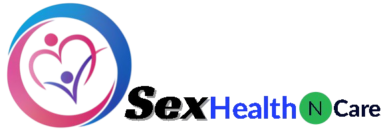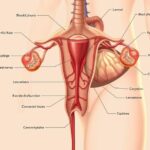How to Become a Sexual Health Educator: A Step-by-Step Guide
How to become a sexual health educator: A step-by-step guide to starting your career.
Embarking on a career in sexual health education can be both fulfilling and impactful. This field combines expertise in health and education to empower individuals and communities. Our guide provides a clear roadmap to help you navigate this rewarding path.
We explore various program options and the importance of AASECT certification. Understanding these steps ensures you meet professional standards. Additionally, we highlight the supportive community that fosters growth and collaboration in this field. Tuition and payment options are also discussed, making this career accessible to many. Whether you’re just starting or advancing your skills, our guide offers the clarity and confidence needed to succeed.
Key Takeaways
- Discover the steps to start a career in sexual health education.
- Learn about program options and AASECT certification requirements.
- Explore tuition and payment options for accessible learning.
- Join a supportive community dedicated to sexual health awareness.
- Gain confidence and clarity with our comprehensive guide.
- Sexual health information.
Understanding the Role of a Sexual Health Educator
The role of a sexual health educator extends far beyond traditional teaching. These professionals work in diverse settings, from schools to healthcare facilities, delivering vital knowledge. Their work impacts individual well-being and community health, making it a rewarding career choice.
Defining the Scope and Impact
Sexual health educators design and implement comprehensive curriculum. They address topics like relationships, consent, and reproductive health. Their goal is to empower individuals with accurate information and practical skills.
This role also involves advocacy and community outreach. Educators collaborate with organizations to promote awareness and reduce stigma. Their efforts contribute to healthier, more informed societies.
Career Benefits and Opportunities
This field offers diverse employment opportunities. Educators can work in schools, clinics, or non-profits. They may also specialize in areas like adolescent health or LGBTQ+ education.
Professional growth is a key benefit. Workshops and specialized courses enhance skills and knowledge. Achieving certification further boosts credibility and career prospects.
- Plan and deliver engaging curriculum tailored to diverse audiences.
- Advocate for policies that support sexual health education.
- Collaborate with healthcare providers and community leaders.
- Participate in workshops to stay updated on best practices.
The multi-disciplinary nature of this work blends education with practical experience. It’s a career that combines passion with purpose, making a lasting impact.
Educational Pathways and Certification Options
Pursuing a career in this field requires a solid educational foundation and specialized training. Formal education and certifications are essential to meet industry standards and excel in this role. Below, we explore the key steps to prepare for this dynamic profession.
Degree Requirements and Specialized Training
A Bachelor’s degree is often the first step. Many programs focus on health sciences, psychology, or education. Advanced roles may require a Master’s degree, providing deeper knowledge and skills.
Specialized training programs bridge theory with practical application. These courses cover topics like curriculum design, communication strategies, and ethical considerations. Hands-on experience is a critical component of this training.
AASECT Certification and Other Credentials
The AASECT certification is a benchmark in this field. It validates expertise and enhances career prospects. The process involves completing specific courses, group projects, and practicum hours.
Meeting all requirements prepares students for diverse roles. Well-qualified individuals with the right background can advance rapidly. Key courses and training modules ensure comprehensive preparation.
- Complete a Bachelor’s or Master’s degree in a relevant field.
- Enroll in specialized training programs for practical skills.
- Apply for AASECT certification to meet industry standards.
- Participate in group projects and practicum hours for hands-on experience.
- Stay updated with essential courses and training modules.
how to become a sexual health educator
The path to becoming a certified professional in this field is structured and rewarding. Certification ensures you meet industry standards and prepares you for diverse roles. We outline the essential steps to guide you through this process.
Step-by-Step Process for Certification
Start by researching accredited programs that align with your goals. Many courses focus on sexuality education, offering well-developed content and practical experiences. These programs often include group projects and hands-on work to build your skills.
Next, complete the required coursework and practicum hours. This ensures you gain both theoretical knowledge and real-world application. Addressing common questions early can help you stay on track and overcome challenges.
Finally, apply for certification through recognized bodies like AASECT. Be prepared to meet professional requirements and pay the necessary fees. Timing your registration carefully ensures you’re ready for the next steps in your career.
- Research accredited programs with a focus on sexuality education.
- Complete coursework, practicum hours, and group projects.
- Address common questions and challenges during the process.
- Apply for certification and meet all professional requirements.
- Plan for fees and timing to ensure a smooth registration process.
Training, Workshops, and Curriculum Development
A well-designed curriculum is the cornerstone of professional development in this area. Training programs combine theoretical knowledge with practical skills, ensuring educators are well-prepared. Workshops and experiential learning play a vital role in reinforcing these concepts.
Key Modules and Course Components
Courses are divided into comprehensive modules, each focusing on specific topics. These include human sexuality, reproductive biology, and sexuality attitudes. Each module is designed to build a strong foundation of knowledge.
Participants earn credits by completing these modules, which contribute to their certification. A structured plan of study ensures mastery of both core and specialized topics. This approach prepares educators for the broad area of sexual health training.
Integrating Practical Workshops and Experiential Learning
Hands-on workshops are a critical component of the training process. They allow participants to apply theoretical knowledge in real-life scenarios. Interactive sessions foster deeper understanding and skill development.
Experiential learning complements classroom instruction. It provides opportunities to engage with diverse audiences and address real-world challenges. This integration ensures educators are confident and competent in their roles.
- Explore comprehensive modules covering key topics in sexual health.
- Earn credits and work towards a recognized certificate.
- Participate in hands-on workshops to enhance practical skills.
- Develop a structured plan of study for professional growth.
- Engage in experiential learning to address real-world challenges.
Gaining Practical Experience and Building Your Network
Practical experience is essential for success in this profession. It bridges the gap between theory and real-world application, ensuring educators are well-prepared. We explore the practicum components and networking strategies that enhance professional growth.
Practicum Components and Supervision Guidelines
The practicum requires 60 hours of supervised education in various settings, including schools and community organizations. This hands-on approach allows educators to apply their knowledge in real-life scenarios. Supervision follows SAR guidelines, ensuring a structured and effective evaluation process.
Balancing direct experience with academic training is crucial. Educators gain practical skills while maintaining a strong theoretical foundation. This combination prepares them for diverse roles and challenges in the field.
Networking and Community Engagement Opportunities
Building a strong network is vital for career advancement. Community events and school-based engagements provide valuable opportunities to connect with peers and leaders. These interactions foster collaborative learning and long-term professional relationships.
Engaging with the community also enriches practical understanding. Educators gain insights into diverse perspectives and challenges, enhancing their ability to address real-world issues. Networking encourages continuous growth and career development.
- Complete 60 hours of supervised education in school and community settings.
- Follow SAR guidelines for structured supervision and evaluation.
- Participate in community events to build a strong professional network.
- Balance hands-on experience with academic training for comprehensive preparation.
- Engage with diverse audiences to gain practical knowledge and insights.
Program Costs, Tuition, and Financial Considerations
Understanding the financial aspects of your education is crucial for long-term success. We break down the costs and payment options to help you plan effectively. This ensures you can focus on your studies without financial stress.
Tuition Payment Options and Financial Planning
Programs in this field offer flexible payment plans to suit your needs. You can pay the full tuition upfront or choose installment plans over 12 or 18 months. This flexibility makes it easier for adult learners to manage their finances.
Beyond tuition, consider additional costs like course materials, SAR events, and certification fees. Planning for these expenses in advance ensures a smooth experience. We recommend creating a budget to track your spending and allocate resources wisely.
Investing in a high-quality program provides significant value for your career. The skills and knowledge you gain open doors to diverse opportunities. Balancing your time and finances effectively is key to making the most of your education.
- Explore payment options, including installment plans over 12 or 18 months.
- Account for additional costs like materials, events, and certification fees.
- Create a budget to manage your finances and track expenses.
- Recognize the value of investing in a reputable program for career growth.
- Plan your time and resources to balance education with other responsibilities.
Well-structured financial planning enhances your overall learning experience. It allows you to focus on your goals and achieve success in this rewarding field.
In Conclusion
Achieving certification as a sexuality educator opens doors to impactful opportunities in education and healthcare. By following the steps outlined in this guide, you gain the skills and credentials needed to excel in this rewarding field.
Certification unlocks roles in schools, community organizations, and healthcare settings. Continuous learning and networking at every level ensure long-term career growth. Organizations like AASECT provide ongoing support, enhancing your professional journey.
Becoming a recognized sexuality educator strengthens your ability to make a difference. Rigorous training and certification lead to meaningful partnerships and lasting impact. Join a dynamic community of professionals dedicated to improving sexual health education.
Take the next step today. Seize the opportunity to empower individuals and communities through your expertise and passion.
FAQ For How to Become a Sexual Health Educator
Q1. What qualifications are needed to work in this field?
Ans: A degree in health, education, or a related field is often required. Specialized training and certifications, such as AASECT, can enhance your credentials.
Q2. What does AASECT certification involve?
Ans: AASECT certification includes completing specific coursework, supervised practicum hours, and passing an exam. It validates your expertise in sexuality education.
Q3. Are there workshops available for skill development?
Ans: Yes, many organizations offer workshops focusing on curriculum development, teaching strategies, and practical skills for effective education.
Q4. How can I gain practical experience?
Ans: You can participate in practicum programs, volunteer with community organizations, or work under supervision in healthcare or educational settings.
Q5. What topics are covered in training programs?
Ans: Programs typically include modules on anatomy, communication, ethics, and cultural competency, ensuring a well-rounded understanding of sexuality education.
Q6. Are there financial aid options for training?
Ans: Many institutions offer payment plans, scholarships, or grants to help manage tuition fees for certification programs.
Q7. How long does it take to complete certification?
Ans: The timeline varies but generally ranges from several months to a year, depending on the program and your pace of completion.
Q8. Can I work in schools or healthcare settings?
Ans: Yes, professionals in this field often work in schools, clinics, or community organizations, providing education and resources on sexual health.
Q9. What are the benefits of networking in this field?
Ans: Networking helps you connect with peers, mentors, and organizations, opening doors to job opportunities and collaborative projects.
Q10. Is continuing education required?
Ans: Yes, staying updated through workshops, courses, and conferences ensures you maintain current knowledge and skills in this evolving field.












